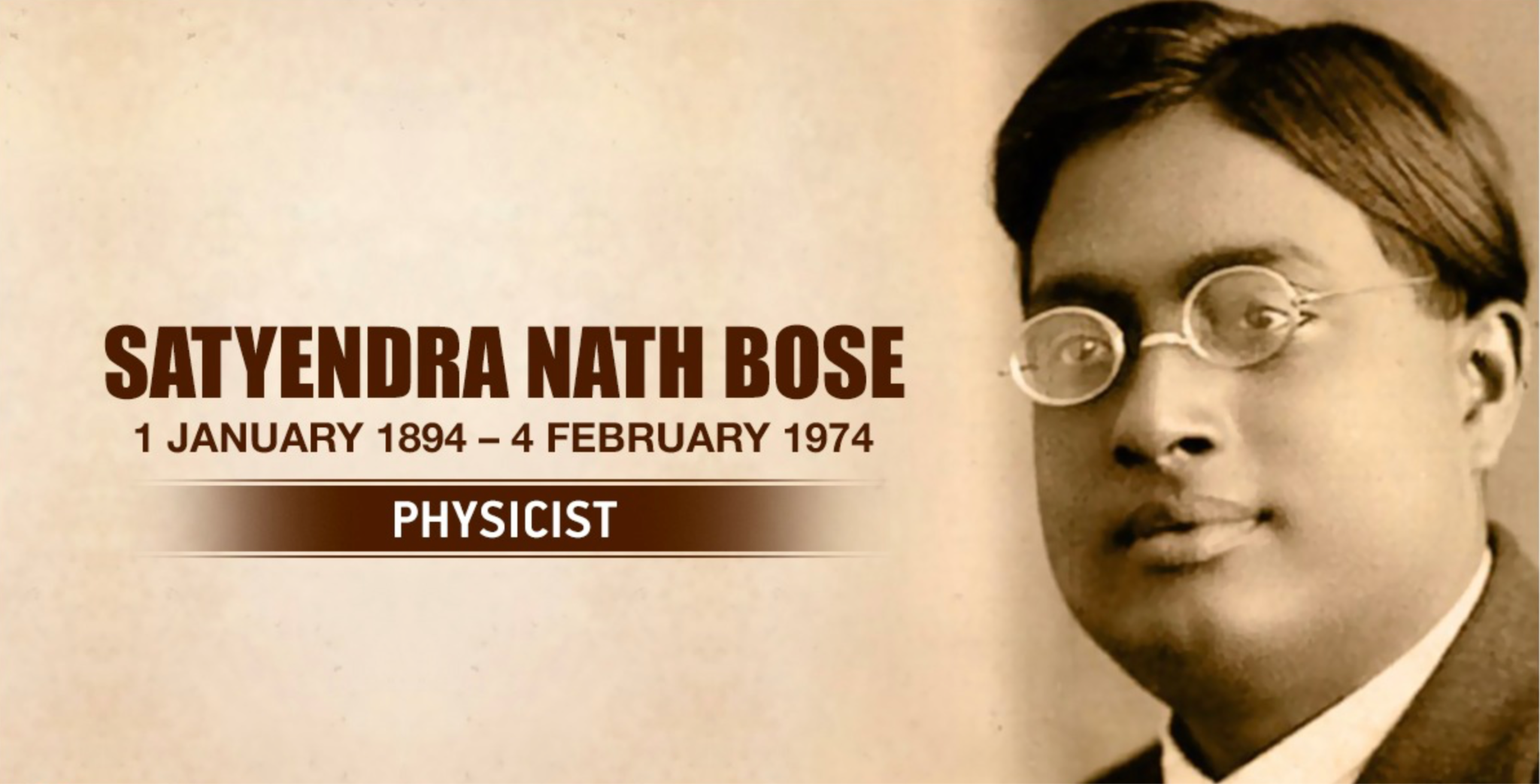Hundred years ago, Satyendra Nath Bose changed physics forever

- 20 Feb 2024
Why is it in the News?
In 2024, we commemorate the centenary of Bose's pivotal discovery of the precise equations governing the behaviour of collections of photons, fundamental particles of light.
About Satyendra Nath Bose:
- Satyendra Nath Bose (1894-1974) was an eminent Indian physicist renowned for his pioneering contributions to theoretical physics, notably in the realms of quantum mechanics and statistical mechanics.
- His groundbreaking research laid the groundwork for Bose-Einstein statistics and the theoretical elucidation of Bose-Einstein condensate, a novel state of matter.
- Bose's profound insights not only advanced the understanding of fundamental physics but also played a pivotal role in refining the Standard Model of Particle Physics.
- His visionary work eventually paved the way for significant discoveries in particle physics, including the identification of the Higgs Boson, colloquially referred to as the "God Particle."
Major Contributions of Satyendra Nath Bose:
- Foundation of Bose-Einstein Statistics and Bosons: In 1924, Bose formulated a revolutionary explanation for Planck's law of black-body radiation using quantum mechanics principles, introducing the concept of "Bose-Einstein statistics."
- This theory delineates the behaviour of particles known as "bosons," characterized by integer spin.
- Bose-Einstein statistics elucidate how bosons, such as photons and atoms, preferentially occupy the same quantum state, a behaviour distinct from fermions governed by the Pauli exclusion principle.
- This groundbreaking work laid the groundwork for understanding particle behaviour at low temperatures and foretold the existence of the Bose-Einstein condensate, a novel state of matter.
- Prediction of Bose-Einstein Condensate: Bose's collaboration with Einstein in statistical mechanics led to the theoretical prediction of the Bose-Einstein condensate (BEC), a revolutionary concept in quantum physics.
- According to Bose-Einstein statistics, at ultra-low temperatures approaching absolute zero, bosons can congregate in the lowest energy state, forming a condensed state.
- Often dubbed the "fifth state of matter," BEC occurs when bosons lose sufficient energy to coalesce into a single quantum state, creating a cohesive "super-particle" cloud.
- Experimental confirmation of Bose-Einstein condensation in 1995, decades after Bose's theoretical proposal, garnered Eric Cornell, Carl Wieman, and Wolfgang Ketterle the Nobel Prize in Physics in 2001.
- Together with Meghnad Saha, he published the first English translation of Einstein’s papers on general relativity.
- His dedication to research and scientific integrity earned him numerous accolades, including the Padma Vibhushan and the Fellowship of the Royal Society.
